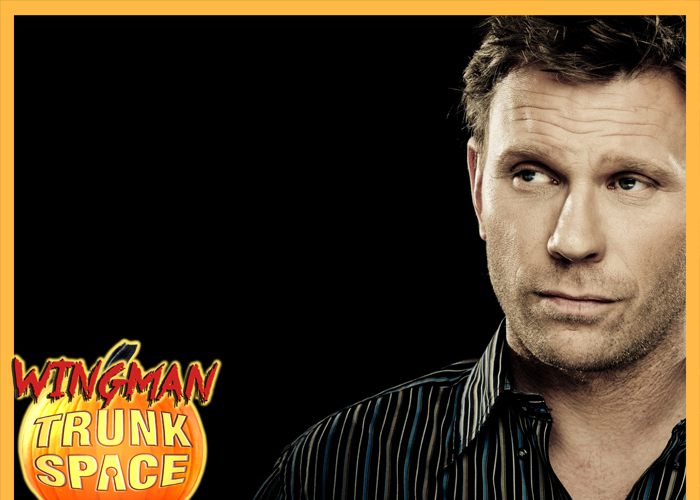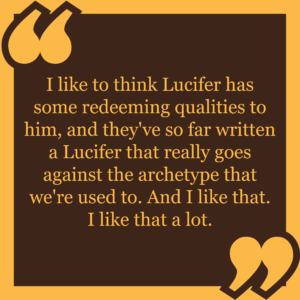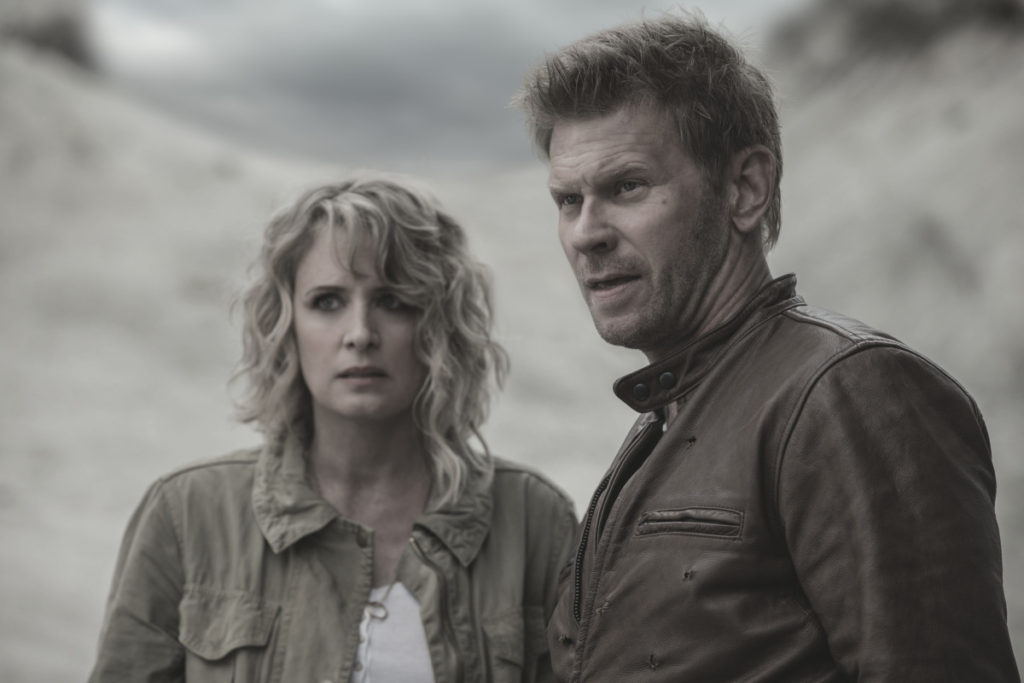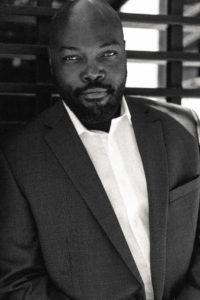
Classically-trained actor Peter Macon is experiencing multi-layered career fulfillment as a pretend crew member aboard the imaginary spaceship the Orville.
On one hand, his current adult self is venturing on a journey of discovery with a character who is not only complex in personality, but is an entirely new species never-before-seen on film. It’s rife with opportunity.
On the other hand, his inner child, the one who grew up loving science fiction, is pumping his fist in excitement because his future self is spending every day on a spaceship venturing into galaxies far, far away. It’s a little boy’s dream come true.
As Lt. Cmdr. Bortus on the FOX comedy/drama hybrid “The Orville,” Macon is reveling in every on-screen opportunity, playing a prosthetic-wrapped straight man in a world crafted from the mind of Seth MacFarlane – which means even a straight line is given its own quirky curves.
We recently sat down Macon to discuss the anonymity of the role, playing Macbeth 150 times in one year, and what aspects of his craft help to shed a little light on the folly of humanity.
TrunkSpace: Is there something kind of nice about taking on a major role in a big network show and still being able to retain your privacy due to the nature of the role with the makeup and prosthetics?
Macon: I love it. I love it because it’s what it is. I don’t pine to be, “Oh, I wish my face was on the billboard so that people would recognize me.”
I worked at the Oregon Shakespeare Festival for like five years, and it’s a really small town, but it’s a huge Shakespeare festival. You have like zero anonymity. You walk down the street and people are like, “Hey, I saw you in that show!” “I hated it,” or “I loved it,” or whatever.
But with this, it’s cool, because Los Angeles is already kind of an anonymous city – you can just disappear. It’s fun being Bortus with his voice and mask work, and people don’t recognize my face. I don’t care one way or the other, but it’s certainly fun to be standing at a bus stop and people are like, “Oh, look at this poster, look at this guy,” and it’s me, but I’m not saying anything. So that’s fun.
TrunkSpace: Did the makeup and wardrobe force you to change the way you would approach the performance at all, due to any sort of limitations?
Macon: I mean, not going into it, no. You can’t really plan for that, you kind of just have to get up there and do it, but once I got the prosthetics on, and saw what the limitations were – I lose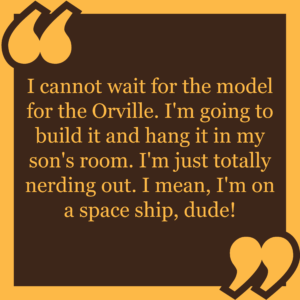 about 30 percent of my hearing, I have kind of limited range, like periphery and turning my neck, and stuff like that. But then you just use that for the character, because he’s kind of stiff and he’s kind of a rigid, no nonsense, very serious cat. So, you know, it just kind of works itself in. You just take what you get, and you make it into what you’re supposed to make it.
about 30 percent of my hearing, I have kind of limited range, like periphery and turning my neck, and stuff like that. But then you just use that for the character, because he’s kind of stiff and he’s kind of a rigid, no nonsense, very serious cat. So, you know, it just kind of works itself in. You just take what you get, and you make it into what you’re supposed to make it.
Until I got into the suit, and into the prosthetics and stuff, it was mostly his demeanor, and the tone of his cadence… stuff that I had access and control over before I got into the makeup. And then once the makeup was on it was a whole different ballgame, because it does it by itself. I don’t really have to do anything.
TrunkSpace: You mentioned how Bortus is a very serious cat, but in a cast of zany characters, is it fun playing the straight one?
Macon: Well, as you’ll see, that is a loosely defined term, the “straight one.” (Laughter) There are things that come up that, for instance, there’s a conversation where Bortus at one point says, “I can sing, I can sing,” and he says it so matter of factly. And then people were like, “Wait, what?” And so Seth was like, “Well, we should probably either prove or disprove that.”
I mean, he’s stiff in the sense that that’s his species – they’re very cut and dry, black and white – but being that he’s interacting with all these other lifeforms, and we’re stuck on the ship, you get affected by that. And the greatness of the writing is that there’s an arc, and there’s a lot of contradiction.
He’s a dark horse. He’s stiff, but he thinks a lot of things deeply… still waters run deep kind of thing. And you’ll see that it’s nuanced, and varied, and it’s not just like one note. It’s very complex.
TrunkSpace: From what we could tell, this is the longest you’ve ever played one character. Is that an enjoyable process for you, getting to spend an extended period of time inside one mind?
Macon: The only other thing I can compare it to is playing Macbeth 150 times up at the Shakespeare Festival. We started in February and we ended in November. It’s a heavy, crazy play, to be in that skin for that long. I think sometime in July I was like, “Man, we’re only halfway here!” But what started to happen was, there was this depth, like a whole other layer, that really reveals itself. And I mean, that’s theater, but you’re doing it every night.
This, I guess it’s comparable because we’re working 16-hour to 17-hour days on average, but then it’s like every day, Monday through Friday, sometimes Saturday, and so it’s equivalent. And there’s so much going on. That’s what’s great about doing series regular work because you really do get to take your time and figure it out. I don’t have to blow everything in one episode, I can kind of calibrate it for the length of, say an arc of four episodes, or over two episodes.
So it really is a joy. And plus, sometimes I have no idea, unlike a play where you know the beginning and the end over and over again, what’s going to happen to this guy until we get the script, and I love that because I’m like, “So you have to now fold this in.”
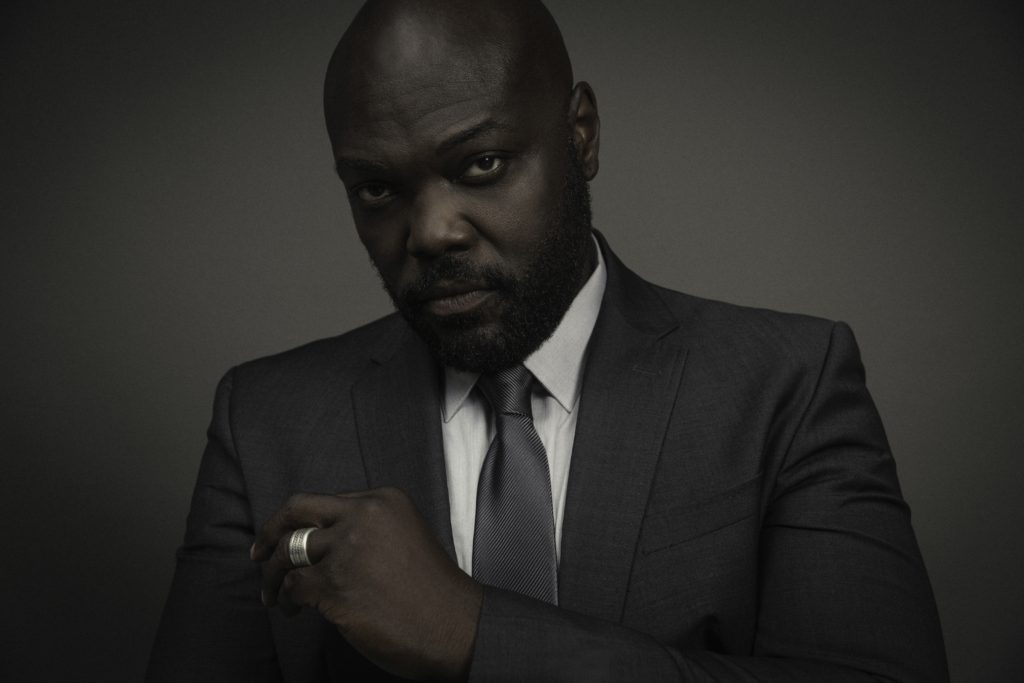
TrunkSpace: Choices you made early in the process can come into play in an entirely different way than you originally expected.
Macon: Yeah. It’s good to make strong choices, but also you have to be malleable because you don’t know everything about this person. But at the same time, you have to build as much backstory as you can, and then it all just works in concert with what you’ve come up with. And then if it doesn’t work, you kind of keep reinventing it to keep it fresh, because what you may have discovered or figured out early on may not even be relevant down the road.
You have to be flexible – as strong as water but as flexible as it. And that’s just so exciting, because that’s what we do. That’s the greatest thing. I was doing this interview yesterday on the radio and I was like, “That’s the greatest part of being an actor, I get to have this experience of the human condition that is so varied, because you get inside of these people and you don’t judge them, and you just become them.” You live, you walk through their shoes, and it’s pretty amazing. It builds for great empathy, and you just have an understanding for people, to a certain extent. I mean, don’t get me wrong, it’s still make believe, and I’m being paid to do it.
TrunkSpace: Absolutely, but to be able to take on characters, particularly those who may make some questionable choices, and have to understand why they’ re making those choices, it’s fascinating because everybody does what they do for a reason.
Macon: Jean Genet, the playwright, said that the greatest tragedy in life is that every man has his reasons. Everybody thinks they’re right. No one really thinks they’re bad. Some people are born without a gene for empathy, they can’t feel, like serial killers can’t feel what their victims feel, so therefore they’re disconnected to it, and it’s a completely cerebral experience.
Just to get in the mind of someone like that, and just to see what that’s about, and just investigate it… it helps to shed some light on the folly of humanity. It’s a really cool job, at the end of the day.
 TrunkSpace: And on the opposite side of that coin, 10-year-old you must be psyched because you’re on a spaceship getting to bring this really fun, alien character to life?
TrunkSpace: And on the opposite side of that coin, 10-year-old you must be psyched because you’re on a spaceship getting to bring this really fun, alien character to life?
Macon: Dude, all the models that I’ve built… I cannot wait for the model for the Orville. I’m going to build it and hang it in my son’s room. I’m just totally nerding out. I mean, I’m on a space ship dude! Crazy! The kid in me, and I love science fiction – I’m watching “The Force Awakens” for the 90th time again, with the sound off, just because I like the visuals. There’s always something new to see. I love it.
TrunkSpace: Science fiction and fantasy projects, when done right, can amass very passionate fandoms. We know you did it some time ago, but you guested on a show with an extremely passionate fandom, “Supernatural.” When you were doing that in season 3, did it have the feel of a show that would be around for 13 seasons?
Macon: I didn’t know what to think. I kind of came late into the game. I had never even seen the show before, so when I got the show I just went back and I watched everything that was up to that point. I click on the TV now, and I’m like, “This show is still going, what the hell?”
I remember season 3, and this is before shows were… there were not very many shows that were going 10 seasons, and certainly not science fiction shows. But this show, man, I mean, I get it because the formula is great. It’s like “Buffy the Vampire Slayer” meets the “Dukes of Hazzard.” (Laughter) It’s kind of like a cool concept, and again, limitless material, because you’re redefining a genre, and so good on them for having just a wellspring of stuff. And I’m not surprised that it’s going this long, but I had no idea.
I don’t know if it would have made a difference, but maybe I would have thought to like, not die. (Laughter)
“The Orville” airs Thursdays on FOX.




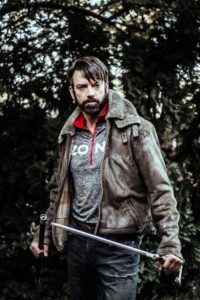


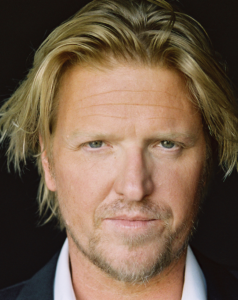

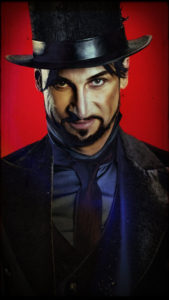
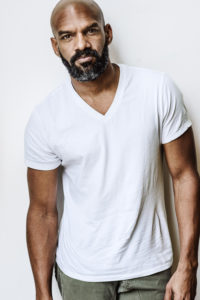
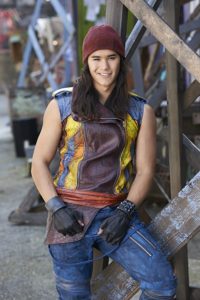

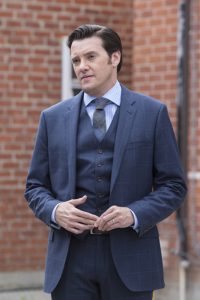


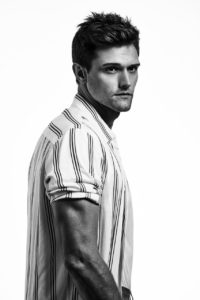

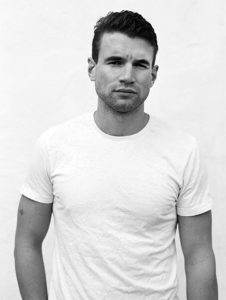






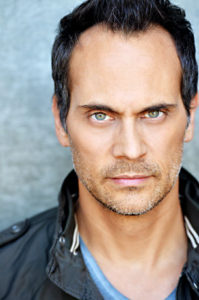


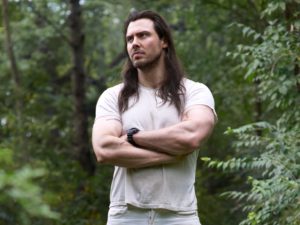


 ance standpoint, you had some very heavy scenes. Did the character provide you with any personality traits that you had yet to explore on camera?
ance standpoint, you had some very heavy scenes. Did the character provide you with any personality traits that you had yet to explore on camera? TrunkSpace: Are you somebody who can normally leave those heavy performance moments on set at the end of the day? Was this one just so emotionally-draining that it was impossible not to have it carry with you?
TrunkSpace: Are you somebody who can normally leave those heavy performance moments on set at the end of the day? Was this one just so emotionally-draining that it was impossible not to have it carry with you?
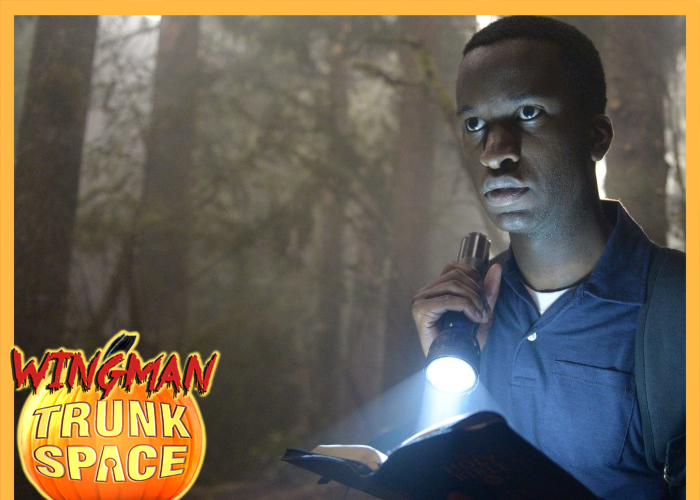
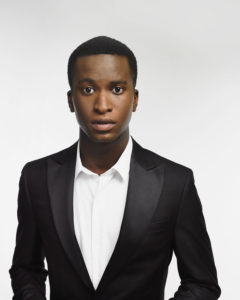

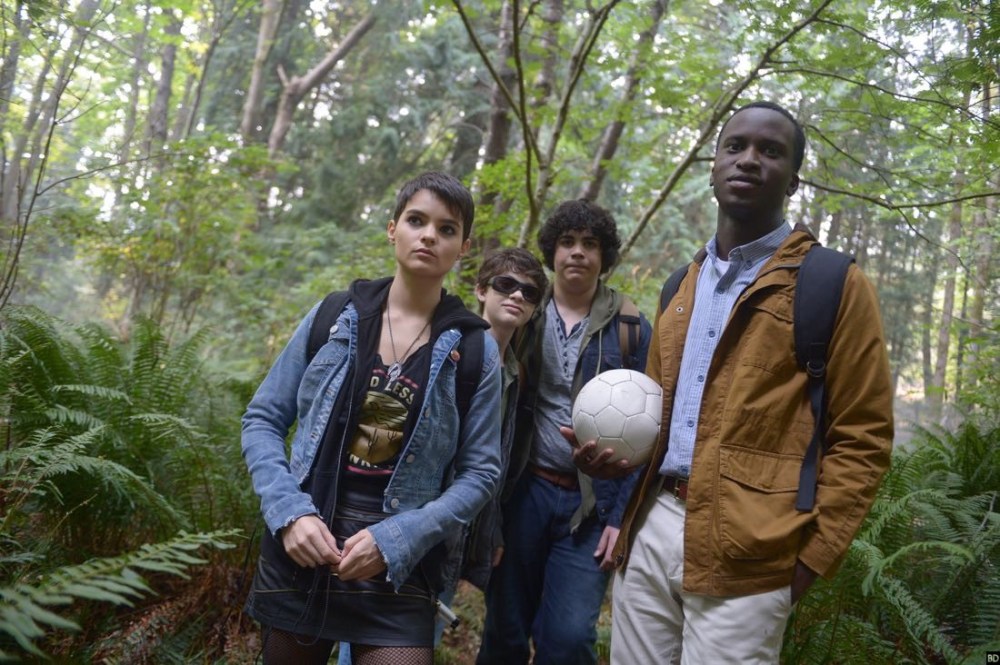


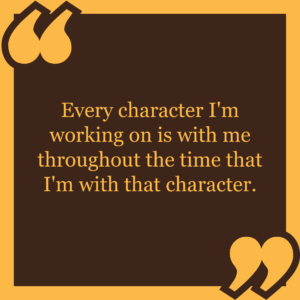

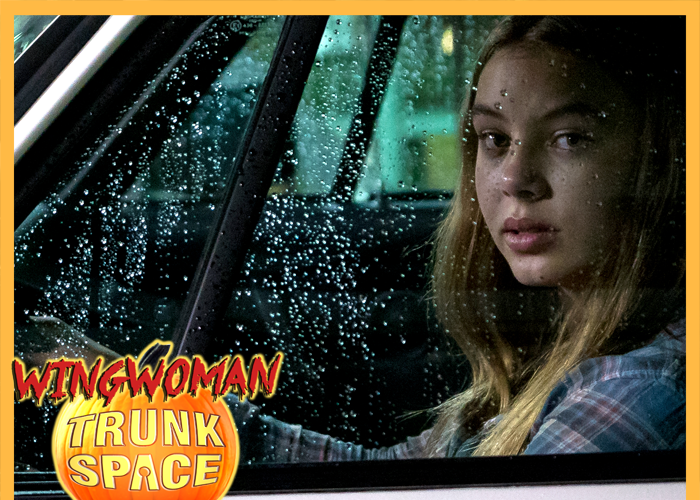
 There is a new generation of young actors prepared to take over Hollywood. Standing at the forefront, already having amassed an incredibly-impressive body of work, is 13-year-old Caitlin Carmichael. Currently starring in the gritty crime drama “Wheelman” for Netflix alongside on-screen dad Frank Grillo, the Georgia native’s work can be seen next in the family drama “Epiphany” and then opposite pretty much everybody who is anybody in the upcoming Dan Fogelman film “Life Itself.”
There is a new generation of young actors prepared to take over Hollywood. Standing at the forefront, already having amassed an incredibly-impressive body of work, is 13-year-old Caitlin Carmichael. Currently starring in the gritty crime drama “Wheelman” for Netflix alongside on-screen dad Frank Grillo, the Georgia native’s work can be seen next in the family drama “Epiphany” and then opposite pretty much everybody who is anybody in the upcoming Dan Fogelman film “Life Itself.”
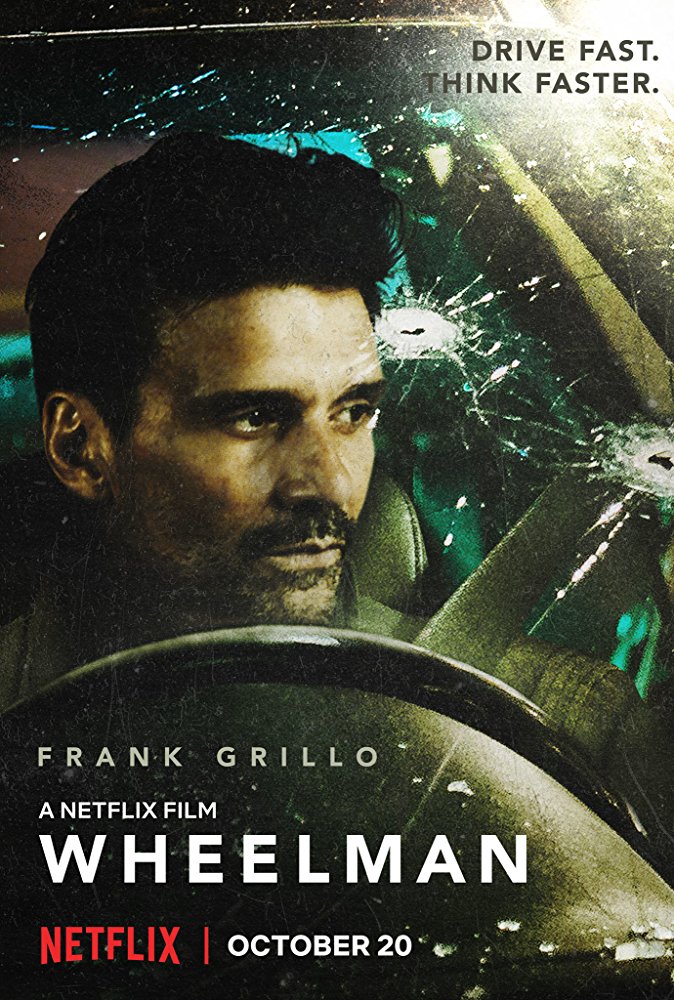 TrunkSpace: Are you someone who can leave that heaviness on set when you wrap at the end of a long day?
TrunkSpace: Are you someone who can leave that heaviness on set when you wrap at the end of a long day?
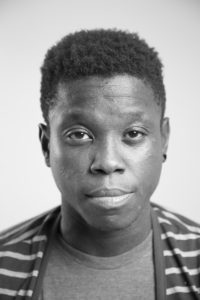
 nature of things.
nature of things.
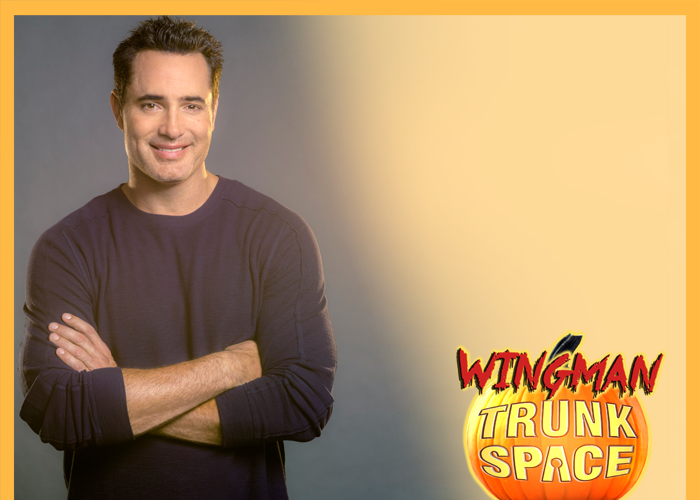
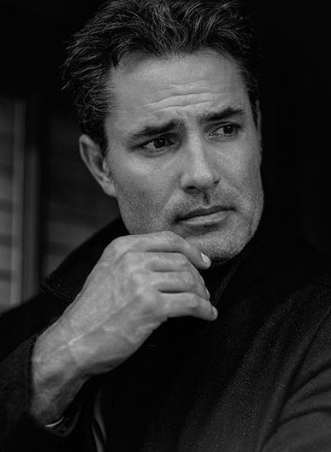 There’s no better seasonal experience for the senses than autumn, and with the Fall Harvest programming event currently underway at Hallmark Channel, the network is making sure we all get to participate in the sights and sounds of the season.
There’s no better seasonal experience for the senses than autumn, and with the Fall Harvest programming event currently underway at Hallmark Channel, the network is making sure we all get to participate in the sights and sounds of the season. loyal Hallmark Channel viewers that rivals the passion of science fiction fans. Has that been your experience?
loyal Hallmark Channel viewers that rivals the passion of science fiction fans. Has that been your experience?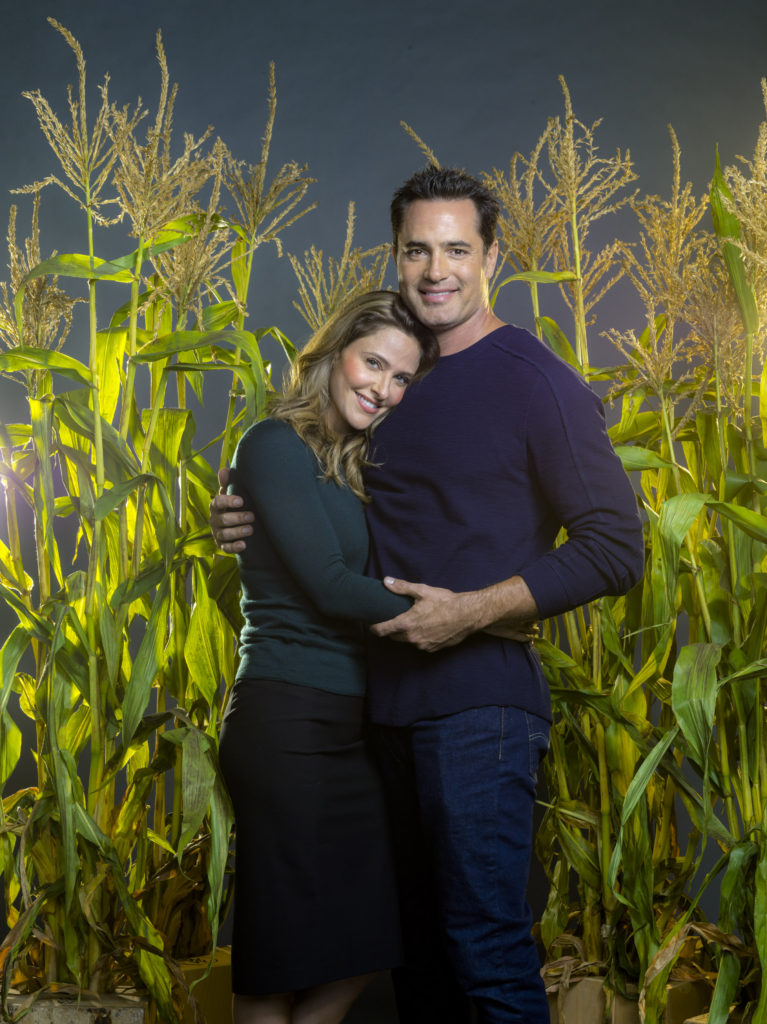
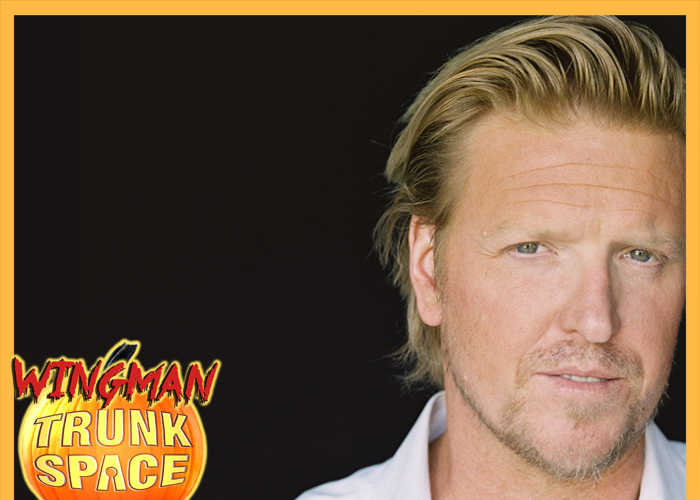
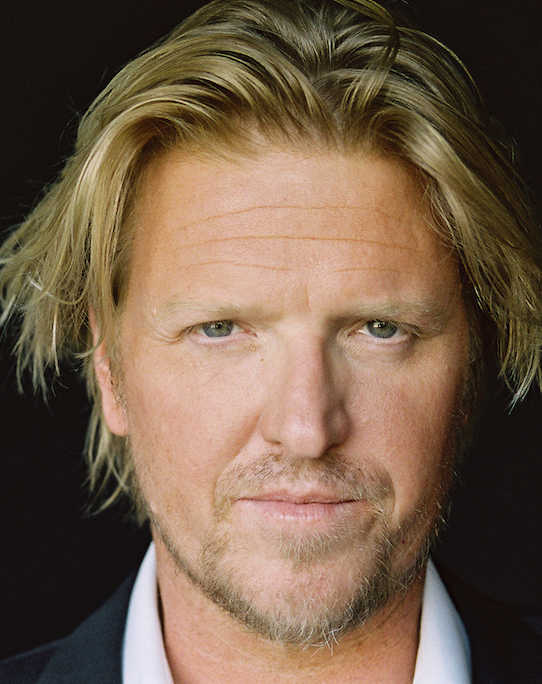
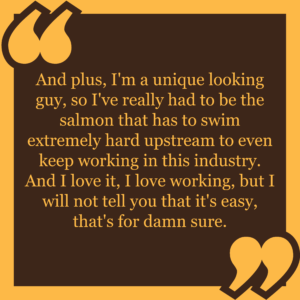 for a plane ticket, or a rental car in Oklahoma, so she drove her Jeep out during “Twister.” Then when I booked “Starship Troopers” and bought a brand new Dodge truck, she drove that out from LA to Wyoming for the whole filming. And then I put her in the film – she was a stand-in for Denise Richards. That was a real bonding experience for all the people there, and to have my girl with me was fantastic.
for a plane ticket, or a rental car in Oklahoma, so she drove her Jeep out during “Twister.” Then when I booked “Starship Troopers” and bought a brand new Dodge truck, she drove that out from LA to Wyoming for the whole filming. And then I put her in the film – she was a stand-in for Denise Richards. That was a real bonding experience for all the people there, and to have my girl with me was fantastic. 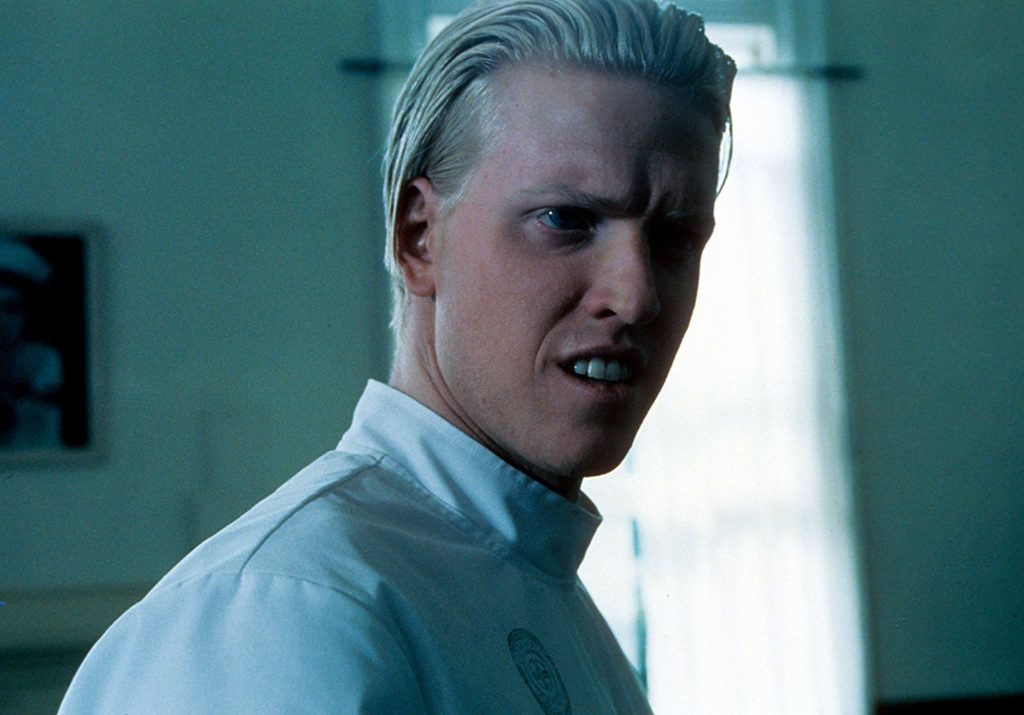
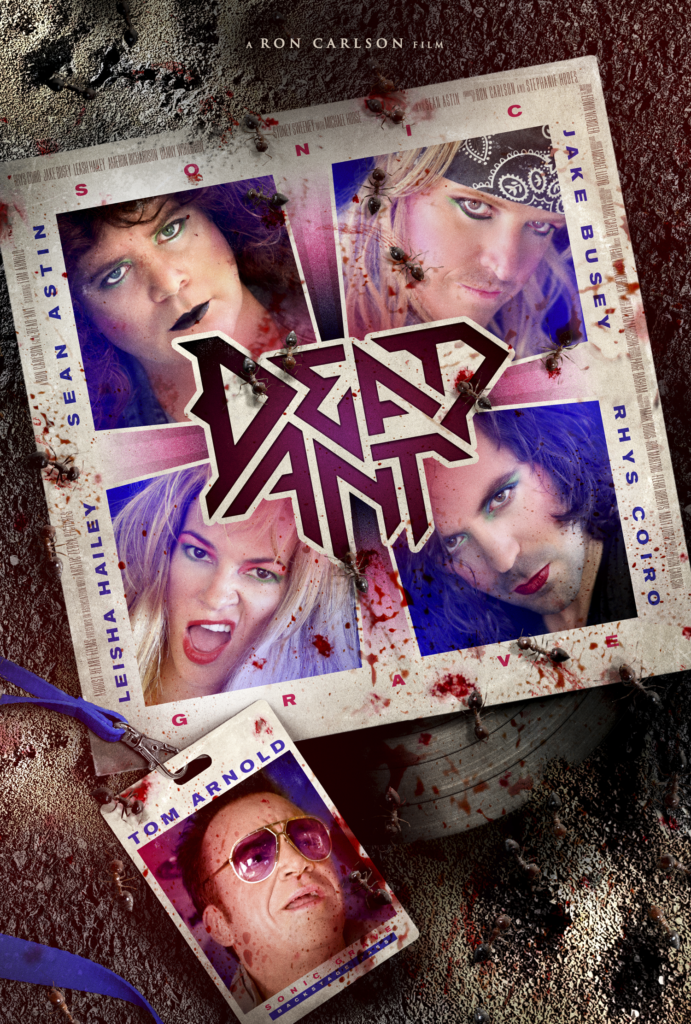 I’ll tell you what, I’ve got a lot of friends who are actors that are my age and we share in a unique thing about being Generation X-ers. There wasn’t as many of us, so we were never the popular majority. So I’ve got a lot friends, including myself, that never quite made it over the top of that multiple million dollar spandex movie for their characters, and you’re kind of caught in this lurch, by virtue.
I’ll tell you what, I’ve got a lot of friends who are actors that are my age and we share in a unique thing about being Generation X-ers. There wasn’t as many of us, so we were never the popular majority. So I’ve got a lot friends, including myself, that never quite made it over the top of that multiple million dollar spandex movie for their characters, and you’re kind of caught in this lurch, by virtue. 